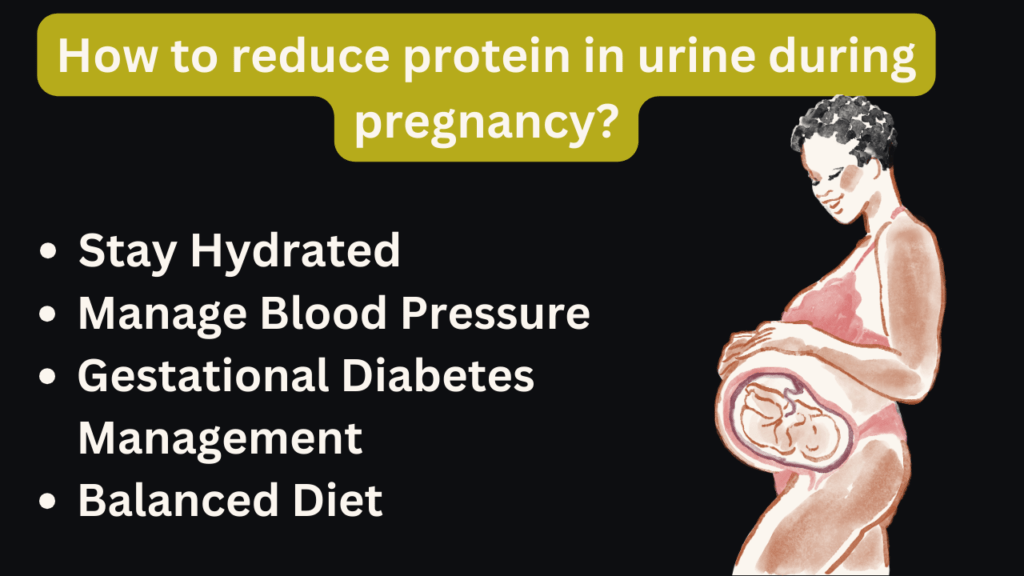Here you will learn how to reduce protein in urine during pregnancy.

Pregnancy is a beautiful and transformative experience for women, but it can also come with certain health challenges. One such concern is proteinuria.
In this situation, excess protein exists in the urine. While a small amount of protein in the urine is common during pregnancy, elevated levels indicate some sort of renal infection.
It’s essential to manage proteinuria to ensure a healthy pregnancy for both the mother and the baby. Here, we’ll explore some strategies to reduce protein in urine during pregnancy.
What is proteinuria?
Proteinuria occurs when trace or very small amounts of protein in the urine, become more in quantity. The kidneys filter waste and excess substances from the bloodstream, including protein, which should be reabsorbed and not excreted in urine. When this system is disrupted, proteinuria can occur.
What are the causes of proteinuria during pregnancy?
Sometimes proteinuria occurs during pregnancy, which can be due to various factors, including:
- Preeclampsia: This condition, characterized by high blood pressure and damage to organs such as the kidneys, liver, and brain, can lead to proteinuria.
- Urinary Tract Infections (UTIs): Infections in the urinary tract can cause proteinuria. UTIs should be promptly treated during pregnancy.
- Dehydration: Not drinking enough water can lead to concentrated urine, potentially increasing protein levels.
- Kidney Infections: Infections in the kidneys can damage their function, causing protein to leak into the urine.
- Gestational Diabetes: Elevated blood sugar levels can affect kidney function, resulting in proteinuria.
How to reduce protein in urine during pregnancy?
- Regular Prenatal Check-Ups: Early detection of proteinuria is crucial. Attend all scheduled prenatal check-ups, where your healthcare provider will monitor your blood pressure and perform urine tests to detect protein.
- Stay Hydrated: Proper hydration is essential to maintain kidney function and prevent concentrated urine. Aim to drink at least eight cups of water per day.
- Balanced Diet: Consume a well-balanced diet rich in fruits, vegetables, lean proteins, and whole grains. Avoid excessive salt intake, which can contribute to high blood pressure.
- Manage Blood Pressure: If you have high blood pressure or develop preeclampsia, your healthcare provider may prescribe medications to manage it and reduce proteinuria.
- Avoid Excessive Physical Stress: Rest when needed and avoid overexertion, as this can impact kidney function.
- Urinary Tract Infection Prevention: Practice good hygiene and seek prompt treatment for any urinary tract infections to prevent kidney-related issues.
- Gestational Diabetes Management: If you develop gestational diabetes, work closely with your healthcare team to manage your blood sugar levels through diet, exercise, and medication if necessary.
- Bed Rest: In severe cases of preeclampsia or if proteinuria persists despite other measures, your healthcare provider may recommend bed rest or hospitalization for closer monitoring.
Good
Thank you for your feedback.❤️